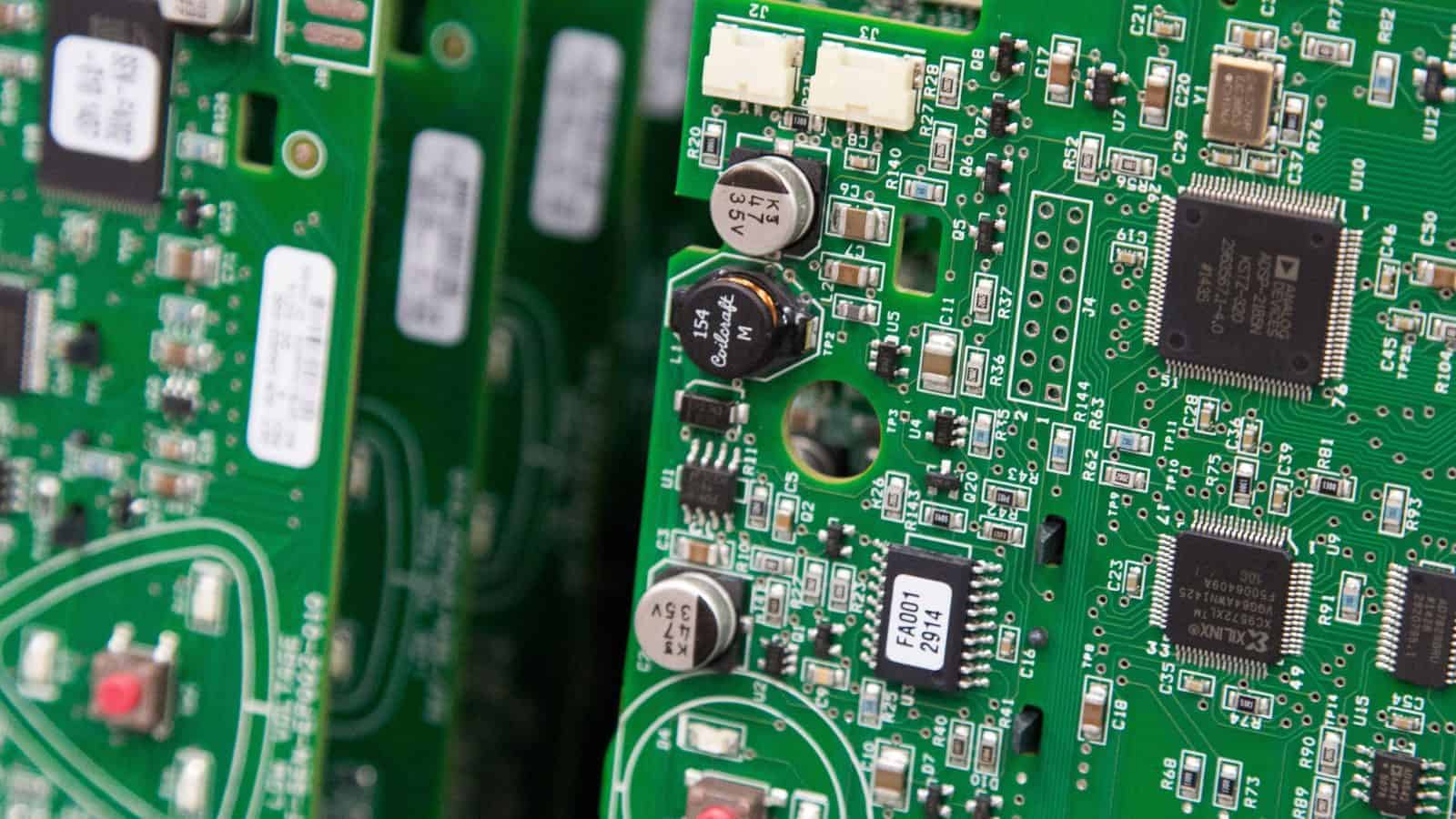An Engineer Looks to the Future at ExxonMobil
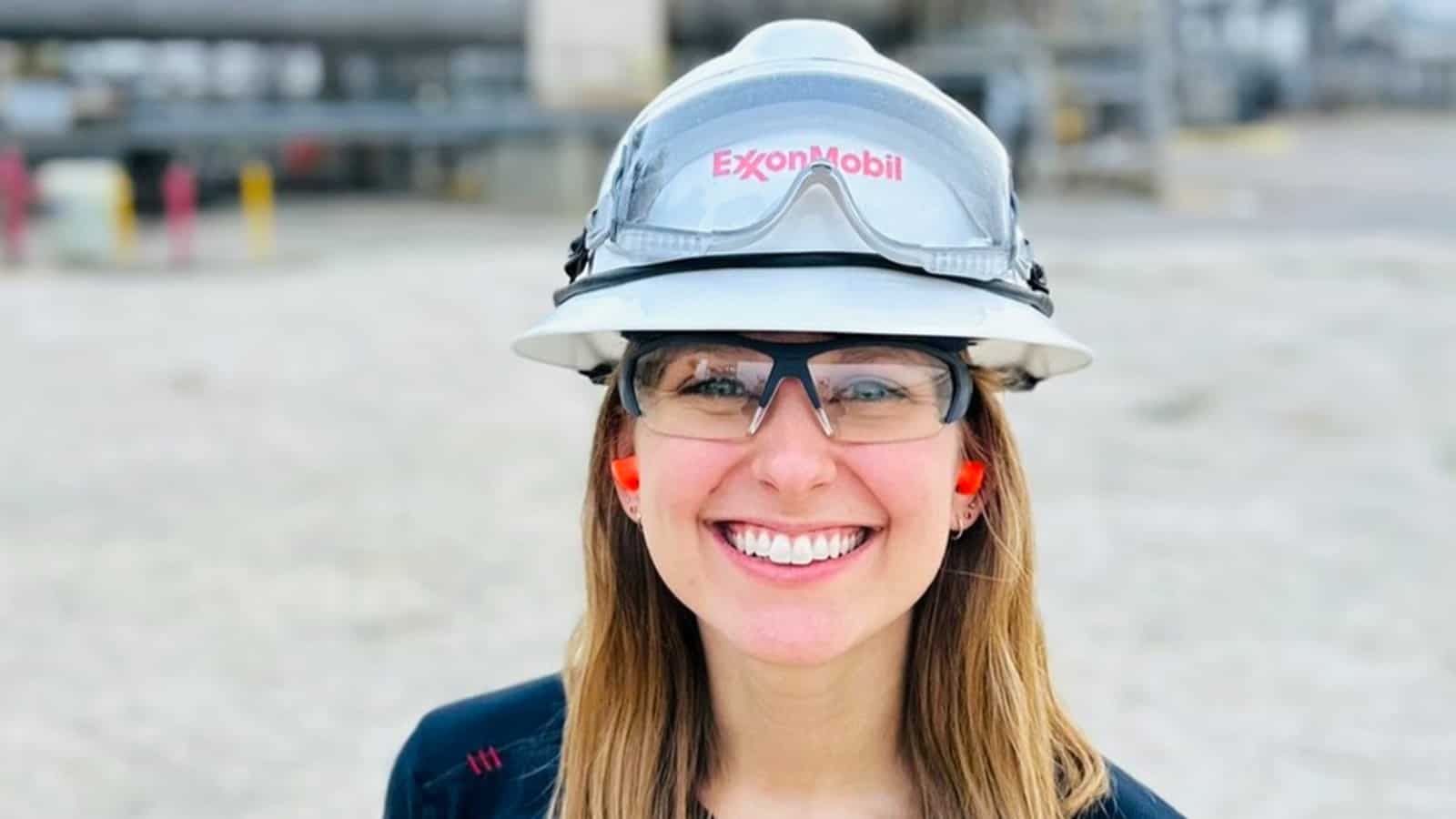
It was an internship in modern manufacturing that changed Bobi Simonsen’s view of the industry—and gave her a sense of how many different kinds of opportunities were available.
“I remember school projects where I would just picture an engineer with a hard hat doing calculations,” said Simonsen. “I didn’t realize how much creativity and collaboration is involved in engineering. There is way more complexity than I had ever realized.”
A new path: Shortly after that internship, Simonsen got connected with ExxonMobil through the University of Texas—and she hasn’t looked back since.
- Today, she’s a technical supervisor at the largest polyethylene site in the world, leading teams of engineers, chemists and technicians who perform experimental commercial-scale trials and improvement projects on the tough synthetic resin used in bags, containers and other packaging.
A sense of purpose: Simonsen is particularly interested in opportunities to support sustainability and sees manufacturing as the perfect place to make an impact.
- “I know young people are really passionate about sustainability, making a difference and having a purpose, and all of those are things you can do in manufacturing, especially at a place like ExxonMobil,” said Simonsen. “We are global, we are integrated and we have the resources and scale to impact an entire industry. That’s the reason I came to work here.”
A push for parity: Simonsen also sees how the lack of women in science, technology, engineering and math feeds into a shortage of women in manufacturing, and she’s eager to see more young women find their way into the field.
- That’s why she leads industry meet-and-greet events on behalf of ExxonMobil at the University of Texas, volunteers at “Introduce a Girl to Engineering Day” events for K-12 students in Austin and Houston and hosts lunch-and-learn sessions with UT’s Society of Women Engineers and the American Institute of Chemical Engineers.
- She also leads ExxonMobil’s SWE conference team, who recruit, share sessions and lead “Invent It Build It” outreach activities through SWE.
- “We do a good job of recruiting candidates who reflect the diversity of the pipeline; my classes in college were 30% women, and that’s translating to the same 30% who make their way into ExxonMobil manufacturing,” said Simonsen. “But that’s not 50%, which is why it’s vital to engage women and minorities to get interested in STEM so we can bring them into classes and then the workforce as they graduate.”
New visibility: Recently, Simonsen was named an Emerging Leader in Manufacturing by the 2024 Women MAKE Awards, a distinction for a select few women under the age of 30 who have achieved rare accomplishments at the start of their careers in manufacturing.
Advice for women: While most workers in the industry are still men, Simonsen encourages women to consider the broad range of opportunities available in manufacturing.
- “I would say, ‘Try it,’” said Simonsen. “Consider trying it, even for a short period like an internship. Because if you step in, and you like it, you can find yourself working on the biggest challenges in the world.”
U.S. Awards Intel Largest Chips Grant
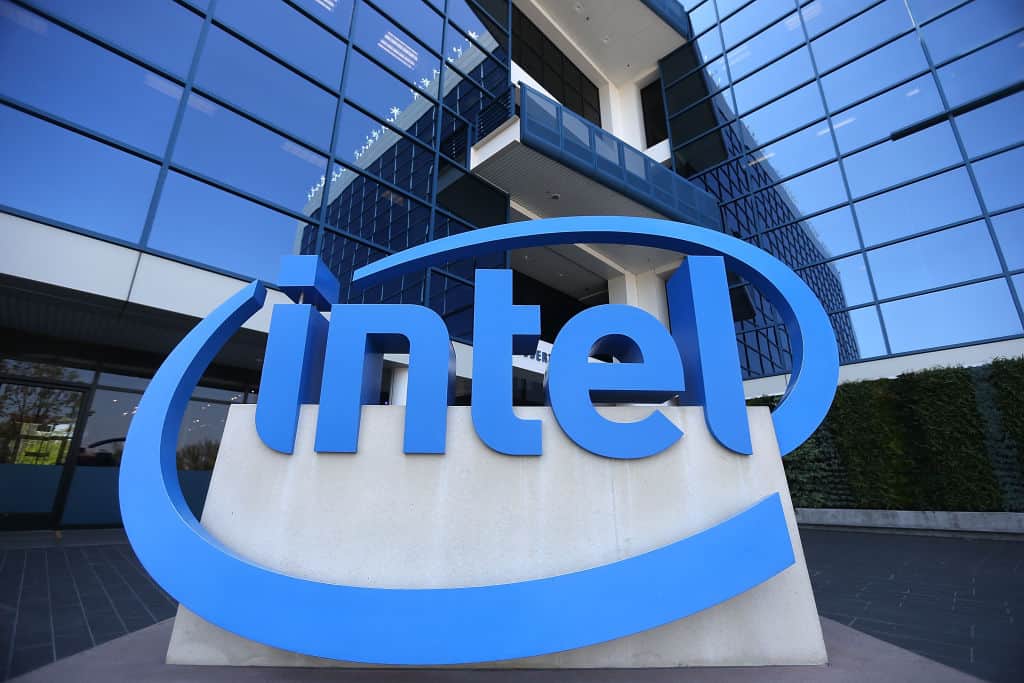
The U.S. will award Intel up to $8.5 billion in grants and as much as $11 billion in loans to expand chipmaking capacity and capabilities in four states, The Wall Street Journal (subscription) reports.
What’s going on: The funds, set aside under the NAM-backed 2022 CHIPS and Science Act to bolster domestic semiconductor production, “will go toward new factories and expansion projects in Arizona, New Mexico, Ohio and Oregon, the Commerce Department said.”
- Spurred by the federal funding, “Intel’s total investment in U.S. projects in the next five years is expected to exceed $100 billion,” according to the Journal, and to create more than 10,000 manufacturing jobs and about 20,000 construction jobs, according to the Commerce Department.
Largest award: The grant to Intel, the largest American chipmaker by revenue, is also the largest CHIPS Act award. It follows a February announcement of a $1.5 billion award to GlobalFoundries Inc.
- The award will support the reshoring of production of leading-edge logic chips, which are “essential to the world’s most advanced technologies like artificial intelligence,” the Commerce Department said.
- President Biden was in Chandler, Arizona, Wednesday to visit Intel’s Ocotillo chip-manufacturing campus.
Why it’s important: “We can’t just design chips; we have to make them in America,” Commerce Secretary Gina Raimondo told reporters on Tuesday, the Journal reports. “It’s an economic security problem. It’s a national security problem. And we’re going to change that.”
How it will work: The funding will be doled out in stages, “according to construction and manufacturing milestones,” the Journal said.
- “In Chandler, Arizona, the money will help to build two new chip plants and modernize an existing one,” CBS News reports. “The funding will establish two advanced plants in New Albany, Ohio, [and] … [t]he company will also turn two of its plants in Rio Rancho, New Mexico, into advanced packaging facilities. And Intel will also modernize facilities in Hillsboro, Oregon.”
The NAM weighs in: Wednesday’s “record, multibillion-dollar award is great news for [Intel] and U.S. manufacturing competitiveness,” the NAM wrote in a social post. “The NAM was a vocal supporter of the CHIPS and Science Act, and we will continue to champion policies that support the expansion of chip production in America.”
Trend of the Week: Smart Factories
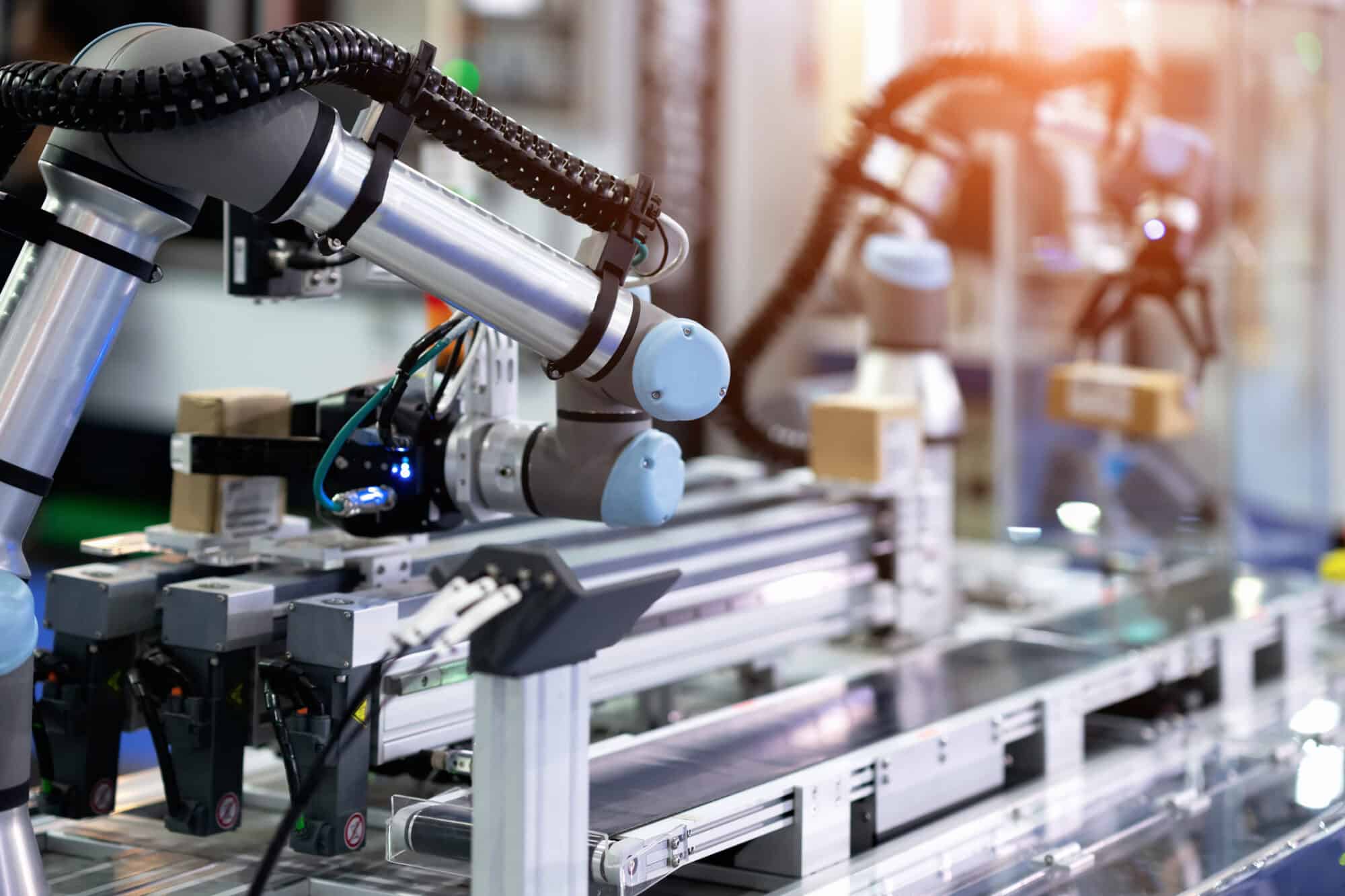
In 2024, factories will just keep getting smarter. From product design to supply chain management, the sophistication of Manufacturing 4.0 (the current wave of technological evolution) will keep on growing. Here’s what manufacturers should know about these advances and how the NAM can help.
What manufacturers should do: Manufacturers looking to make their factories smarter are focusing on four key strategies:
- Creating efficiencies to improve the bottom line with automation and other M4.0 technologies
- Leveraging smart factories to overcome challenges, such as the workforce crisis and supply disruptions
- Ensuring connectivity on the factory floor to allow for use of plant data to create new business models and revenue streams
- Using M4.0 technologies to improve quality control, speed time to market, enhance safety, boost profits, contribute to sustainability goals and engage employees
Expert opinion: Companies are increasingly investing in industrial connectivity, according to PTC Vice President of Market Development of IoT James Zhang.
- “Rather than approaching industrial connectivity with point-to-point integrations, companies are developing holistic, enterprise-wide strategies,” he explained.
- “This approach streamlines and standardizes data from heterogenous manufacturing environments to a single industrial connectivity platform to provide secure, reliable data for OT systems, including MES and SCADA, and IT systems, including data analytics and industrial IoT.”
Resources for you: Check out these NAM resources that will help guide you through these technological changes:
- The Manufacturing Leadership Council, the NAM’s digital transformation division, offers extensive advice and expertise on Manufacturing 4.0 technologies and how to use them.
- NAM Cyber Cover can help you protect your smart factories, as the increase in digitization also opens new avenues for cyber criminals.
- Check out this podcast from the Innovation Research Interchange (the NAM’s innovation division), which covers current research into the adoption of cutting-edge technologies.
Read the full 2024 trends report here.
Extend Pro-Growth Tax Policies, Small Manufacturer Tells Senate
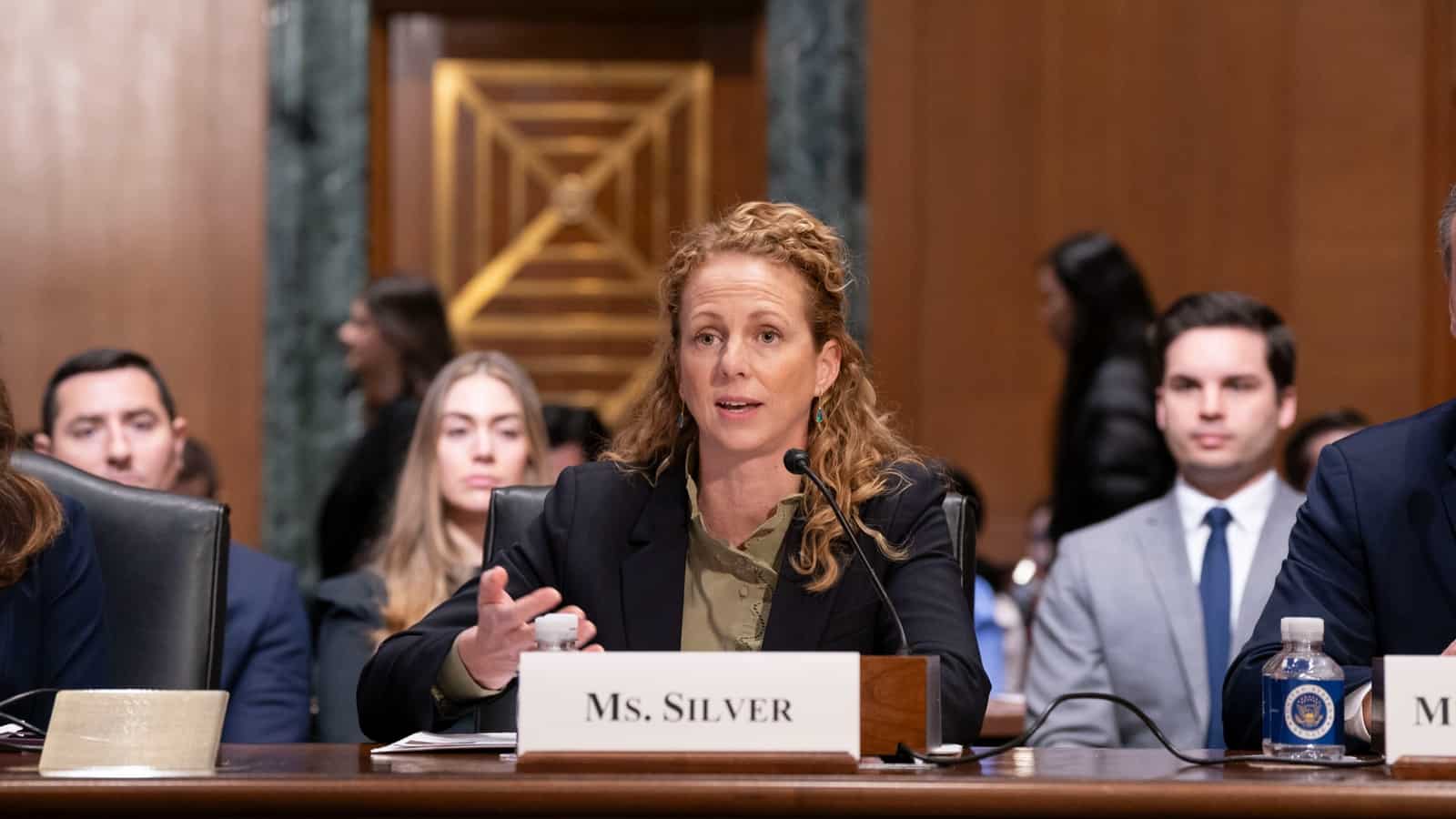
If manufacturing is a team sport, the rules of the game are the U.S. tax code—and to ensure a level playing field for everyone, that code must remain constant, Ketchie President and Owner and NAM Small and Medium Manufacturers Group Chair Courtney Silver told the Senate Finance Committee Tuesday.
The main way to do it, she said, is by restoring three key tax policies: immediate expensing for domestic R&D, enhanced interest deductibility and full expensing.
What’s going on: Thanks to the 2017 Tax Cuts and Jobs Act, Silver’s family-owned, North Carolina–based precision machining company and many other manufacturers were able to grow their companies, invest in workers and give back to their communities, Silver said in testimony during the “American Made: Growing U.S. Manufacturing Through the Tax Code” hearing.
- But two years ago, “the rules of the game began to change, making it more difficult for manufacturers to thrive in America,” she went on. “Crucial policies began to expire.”
Why it’s important: If Congress does not act soon, additional pro-growth tax cuts will expire, further harming manufacturing in the U.S.
- And “more tax increases are on the way,” Silver told committee members, referring to the additional TCJA provisions scheduled to expire next year. “Other critical provisions expire at the end of 2025, which will have a direct impact on the manufacturing sector. Ketchie will be directly harmed by the loss of the pass-through deduction, the increases in our tax rates and the reduced protection from the estate tax.”
Unstoppable combination: The 2017 tax reforms, “paired with pro-growth policies like immediate expensing of capital investments, drove historic growth in the manufacturing sector,” Senate Finance Committee Ranking Member Mike Crapo (R-ID) said during the hearing, citing NAM data on the significant, positive impact of the cuts.
- Indeed, “Ketchie might not be here today if we did not have the economic boom caused by tax reform in the years prior to the pandemic,” said Silver, who called immediate expensing for domestic R&D expensing, enhanced interest deductibility and full expensing “a game-changer for the manufacturing industry.”
Team players: Congress must restore these three provisions and other critical provisions that are set to expire next year.
- “Manufacturing truly is a team sport, and you are all on that team,” Silver told the committee. “Small companies like mine are counting on you to play with us rather than against us, and to ensure that our tax code does the same.”
- The NAM has called on the Senate to advance the House-passed Tax Relief for American Families and Workers Act, which would restore the three key tax policies.
A Merck Manufacturer Leads the Way

For Alexandra Bryant-Boose, being a mentor matters—because she’s seen firsthand what good mentorship can accomplish.
From a mentor at a homeless shelter where she and her mother lived for a time, to an eighth-grade science teacher who pointed her toward a scholarship at an engineering summer program, she is grateful for all the people who helped guide her in the right direction.
- “There were so many experiences where someone gave me an opportunity,” Bryant-Boose said.
Today, as an automation specialist at Merck Manufacturing Division, part of Merck in Durham, North Carolina, Bryant-Boose is paying that opportunity forward, making sure that others are able to find their passion and achieve their dreams.
Discovering manufacturing: Bryant-Boose graduated from North Carolina State University with a degree in chemical engineering, a concentration in biomolecular engineering and a double minor in microbiology and biotechnology.
- When the COVID-19 pandemic hit, she began looking at careers at Merck, and in her words, just stumbled onto automation. After doing some research, she was hooked.
- “Automation is like playing investigative journalism or being a detective,” said Bryant-Boose. “Sometimes there’s a problem and no one will know what the issue is—and automation is about looking into the nitty-gritty, getting a little dirty and opening up a system to find what the issue is. That way of thinking and working is what makes me enjoy what I do.”
Educating young people: In 2022, Bryant-Boose launched a project designed to spread opportunities in science, technology, engineering and math to young people who might not otherwise be able to learn about those subjects.
- She started small in 2022, with a program at a local middle school. Last summer, in collaboration between the Society of Women Engineers and Durham Parks & Recreation, the project grew into a STEM summer camp with about 30 Merck volunteers.
- “We hosted 90 kids in three locations who all got that face-to-face interaction with Merck employees,” she said. “It was a lot of work to organize, but it was good to pay it forward. I’m giving kids someone to look up to and helping them figure out where they might go.”
Promoting support: Bryant-Boose is also a talent acquisition lead for the League of Employees of African Descent at Merck. The internal group, which offers both mentoring and reverse mentoring—in which younger employees provide advice and knowledge to executive team members—gives her a chance to both advise and be advised.
- “I like being able to give people advice that I wish I had,” said Bryant-Boose. “At the end of the day, it’s good to be around people who can relate to things you’re going through. And I find that LEAD allows me to do that at Merck.”
Gaining recognition: Recently, Bryant-Boose was named an Emerging Leader in manufacturing by the 2024 Women MAKE Awards, a distinction for a select few women under the age of 30 who have achieved unique accomplishments at the start of their careers in manufacturing.
Offering advice: Some of Bryant-Boose’s best advice is to encourage people— especially women—to find their own mentors.
- “I know coming into what’s historically been a male-dominated field can be intimidating,” said Bryant-Boose. “If you’re a woman considering manufacturing, or actively getting into it, find that person who can be your mentor. Claim them. Go to them when you need someone to talk to.”
Go deeper: To see the full list of 2024 Women MAKE Award Honorees and Emerging Leaders, click here. To learn more about the Women MAKE Awards, click here, and to learn more about the MI’s free Women MAKE Mentorship Program, click here or contact the team at [email protected].
Trend of the Week: Building Resilience

Some disruptions—like global pandemics—are just too unexpected to anticipate. As manufacturers consider the unknowns they may face in the years ahead, they are prioritizing general resilience instead of attempting to plan for everything. Here’s what you should know about this major trend in 2024.
What manufacturers should do: Manufacturers should focus on these four areas to increase their resilience, according to the NAM’s experts:
- Enhance cybersecurity to guard against new and emerging cyberthreats.
- View resilience as a necessary tool to protect business amid economic uncertainty.
- Shift leadership strategies to build a strong plan for future success, including establishing a path for development and cultivation of future leaders.
- Plan for more and as-yet-unknown disruptions in the future.
Expert opinion: Mike Lipinski, cybersecurity partner at Plante Moran, advises manufacturers concerned about the rising threat of ransomware. He points out how the dangers have evolved in recent years:
- “Manufacturing businesses that fall prey to ransomware can be attacked multiple times. Adversaries who breach your system sell other cybercriminals information about how they got in. The risk isn’t only data theft and access to information but also the criminals’ ability to create backdoors into your environment.”
Resources for you: Check out these NAM resources that can help companies bolster their resilience:
- Here is a useful guide that can guide you through dealing with disasters.
- Check out the NAM Shipping & Logistics program, which can help you cope with delays in shipments and funds in case the unexpected happens.
- If you’re facing legal issues, the NAM’s Legal Referral Service, powered by Meritas, can connect you to world-class legal talent in every sector of law.
Read the full 2024 trends report here.
Arizona: Manufacturing’s Crossroads
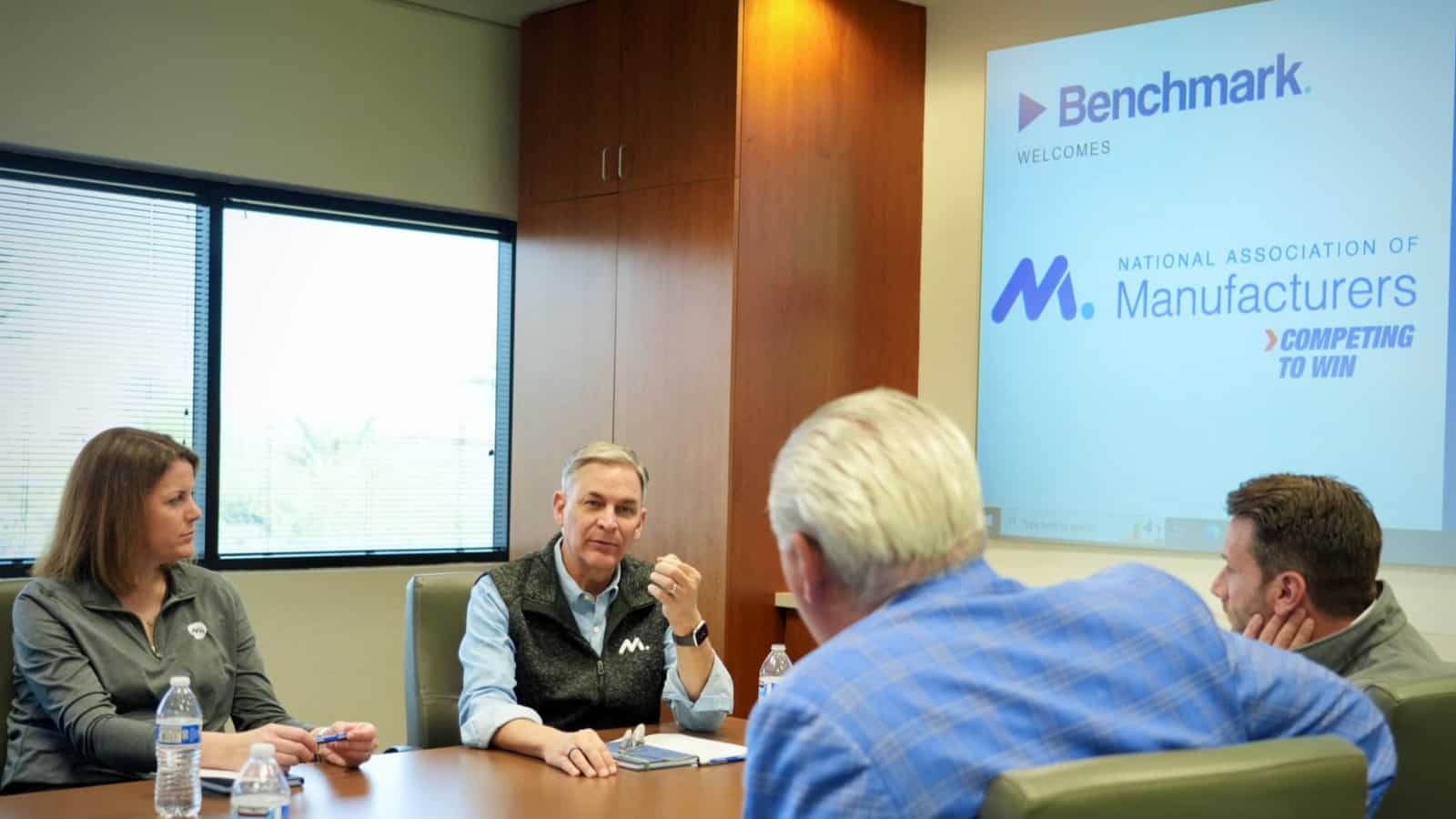
In the heat of Arizona’s “Silicon Desert” and surrounding communities, the future of America’s global competitiveness and climate goals aren’t just being forged—they also hang in the balance.
Last week for the first time in 2024, the NAM brought its Competing to Win Tour to Arizona, and that stark contrast between the status quo and the probable future was on display in Phoenix at global semiconductor equipment manufacturer Benchmark and small manufacturer Valley Forge & Bolt and at Resolution Copper in Superior.
- NAM President and CEO Jay Timmons, Manufacturing Institute President and Executive Director Carolyn Lee—who leads the NAM’s 501(c)3 workforce development and education affiliate—and Arizona Chamber of Commerce & Industry President and CEO Danny Seiden met with local manufacturers to gain their perspective and insights.
Why it matters: The Biden administration and Congress have secured key measures to bolster manufacturing in the U.S., including the NAM-championed CHIPS and Science Act and tax credits in the Inflation Reduction Act to manufacturers investing in advanced production and energy projects. But raw material, workforce and tax and regulatory policy challenges threaten to undermine policy aspirations.
Silicon Desert expansion: With the CHIPS and Science Act poised to transform the sector, Benchmark President and CEO Jeff Benck and Executive Vice President and Chief Operating Officer Dave Valkanoff led the tour of their state-of-the-art Phoenix facility.
- In a good spot: Benchmark is well-positioned for the coming growth in semiconductor equipment demand. It is focused on securing its workforce and navigating a complex regulatory landscape to maximize the opportunity.
- Workforce woes: Even with the NAM and the MI’s Benchmark-supported Creators Wanted campaign boosting the industry’s image and the MI’s FAME initiative training thousands of technicians, finding skilled labor remains the top challenge. Benchmark advances earn-and-learn programs and partnerships with Arizona State University and community colleges to help fill the pipeline, actions that, according to Lee, “can help change the game.”
- Red tape delays: Regulatory hurdles pose obstacles. Benchmark seeks streamlined permitting and sensible rules to maintain their global edge.
- Bullish outlook: Benck is optimistic about the future of U.S. manufacturing and semiconductor demand. Investments in people and technology position the company well to deliver the next generation of innovation.

Taxes and immigration: The NAM’s return visit to Valley Forge & Bolt, after a stop last year with Sen. Kyrsten Sinema (I-AZ), shone a spotlight on the real-world impact of stalled tax policy and the urgent need for reform.
- Valley Forge & Bolt saw record sales in 2023 thanks to 2017 tax reforms boosting its equipment upgrades. Now, with provisions like full capital investment expensing stalled in Congress, orders have slowed.
- CEO Michele Clarke and COO Bret Halley made the case for R&D expensing, interest deductibility and a return to full capital investment expensing. Without these, they said, job growth and America’s manufacturing competitive edge are at risk.
- Skilled workers needed: Despite its success, Valley Forge says finding skilled workers is a constant struggle. Immigration reform is a must to secure the right talent pipeline, said Clarke. “Did you notice our engineers? Most of them are under 30 because we’re snatching them right out of college,” added Clarke. “The engineering talent in this country is dwindling, and we’re not authorizing enough green cards. I, myself, was a green card holder before I became a citizen.”
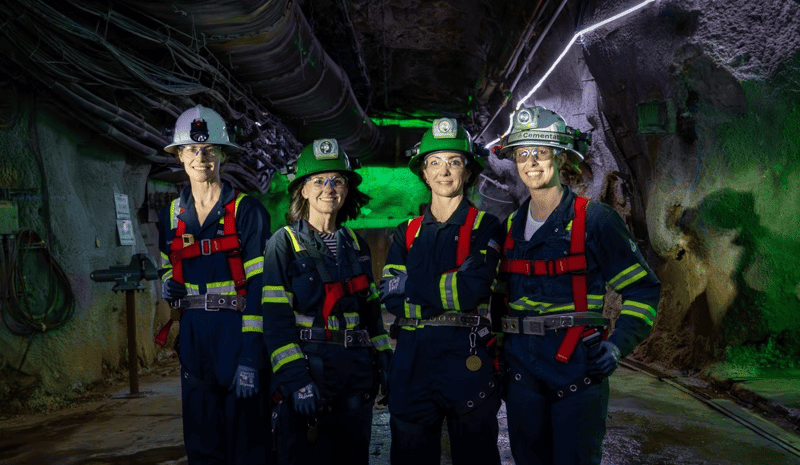
Policy roadblocks: The NAM’s visit to Rio Tinto’s Resolution Copper site highlighted the urgency of permitting reform in the face of critical mineral needs.
- Copper’s critical role: Copper is essential for clean energy. Electric vehicles, solar power grids and wind turbines all demand huge quantities. Yet, the U.S. remains heavily reliant on imported copper, jeopardizing progress.
- Massive potential: The domestic solution lies within the stalled Resolution Copper mine. With its potential to supply 25% of U.S. copper demand, it’s poised to be a key piece of the puzzle.
- Project in limbo: Despite a 350-strong workforce modernizing and maintaining the mine, permitting delays stifle the project’s full impact.
- Sustainable practices: “Resolution Copper is the future of eco-conscious mining,” said NAM Managing Vice President of Brand Strategy Chrys Kefalas, who toured the site. “Their team innovates sustainable practices, leads in water conservation and even supplies 7 billion gallons of water to Arizona farms. And what is more, it isn’t just the facts of the matter or what you saw that drives this point home, but the people who have worked on the site for years make all that clear with the pride they have about the project and their determination to see Resolution Copper through to making lives better for everyone.”
- Jobs and growth: Led by President and General Manager Vicky Peacey, the project promises to contribute $1 billion annually to the economy and more than 1,500 Arizona jobs. “This is about people, jobs and supply chains; and it’s also about realizing clean energy ambitions at the speed and scale that climate goals demand,” said Kefalas.

The bottom line: “The future of U.S. manufacturing might hinge on these contrasting stories. Are we a nation that champions innovation, attracts and keeps the brightest here, supports our manufacturers and tackles climate goals with homegrown solutions, or one that stalls progress in its own backyard,” said Timmons.
- “Arizona is at the epicenter of American manufacturing’s next chapter, and with smart policies and fewer unforced errors at the federal level, we can clear the runway for growth,” added Seiden.
GlobalFoundries to Get $1.5 Billion in CHIPS Funding

Semiconductor maker GlobalFoundries Inc. will be the first recipient of funding under the NAM-supported 2022 CHIPS and Science Act, CNBC reports.
What’s going on: “The U.S. government is awarding $1.5 billion to GlobalFoundries to subsidize semiconductor production, the first major award from a $39 billion fund approved by Congress in 2022 to bolster domestic chip production.”
- The Malta, New York–based GlobalFoundries—the largest U.S. manufacturer of customized semiconductors and the world’s third-biggest chipmaker—plans to use the funds to build a new chip-production facility in its hometown and expand existing facilities there and in Burlington, Vermont.
- The Malta facility will manufacture high-value semiconductors not currently produced in the U.S., Commerce Secretary Gina Raimondo said.
- In addition to the grant, the federal government is also offering GlobalFoundries $1.6 billion in loans.
Why it’s important: “The chips that GlobalFoundries will make in these new facilities are essential chips to our national security,” Raimondo said on Sunday, adding that the “agency is in active talks with numerous applicants and expects to make several announcements by the end of March.”
- In January, Commerce announced it was awarding defense contractor BAE Systems $35 million under the CHIPS Act.
Our role: The NAM—which helped secure several manufacturing priorities in the final CHIPS Act legislation—welcomed the news.
- “Congratulations to [GlobalFoundries]!” the NAM wrote in a social post Monday. “The NAM-championed CHIPS and Science Act is strengthening manufacturing in the U.S. We will continue to work with Congress and the White House to enact permitting reforms that will help speed the construction of these vital projects.”
Trend of the Week: Sustainability Under Scrutiny

Manufacturers have long prioritized sustainability in their operations, but 2024 will bring new attention to the industry’s efforts. As we continue to explore the major manufacturing trends that will shape the industry this year, here’s what you need to know about this key development.
What manufacturers should do: Manufacturers looking to create strong sustainability plans to meet the expectations of regulators, boards and consumers should start by taking these steps, according to the NAM’s experts.
- Craft an overall organizational sustainability plan with metrics and reporting.
- Make changes and upgrades to support energy and resource efficiency, as well as reduce waste and emissions.
- Focus on sustainable products and packaging in addition to sustainable processes.
- Improve product reclamation or recycling in the circular economy.
Expert opinion: According to UL Solutions, company boards have a particularly key role to play in developing sustainability plans.
- “Boards of directors are bound by their fiduciary responsibilities to shareholders, but savvy directors also recognize that environmental and other ESG-linked risks and opportunities are vital to the long-term health of their organizations,” UL notes.
Resources for you: Check out these NAM resources to learn more about sustainability and compliance:
- NAM Energy will connect you with an adviser to create an energy management strategy that will help you cut costs and reduce your environmental impact.
- This podcast from Milliken & Company’s director of research, compliance and sustainability is an excellent case study for manufacturers seeking to remove or remediate PFAS chemicals.
- Dig into the NAM’s extensive collection of policy explainers, on everything from the Environmental Protection Agency’s regulation of particulates to the Securities and Exchange Commission’s regulation of climate disclosures.
Read the full 2024 trends report here.
Timmons Talks Trade, Tariffs, Democracy in Washington, D.C.
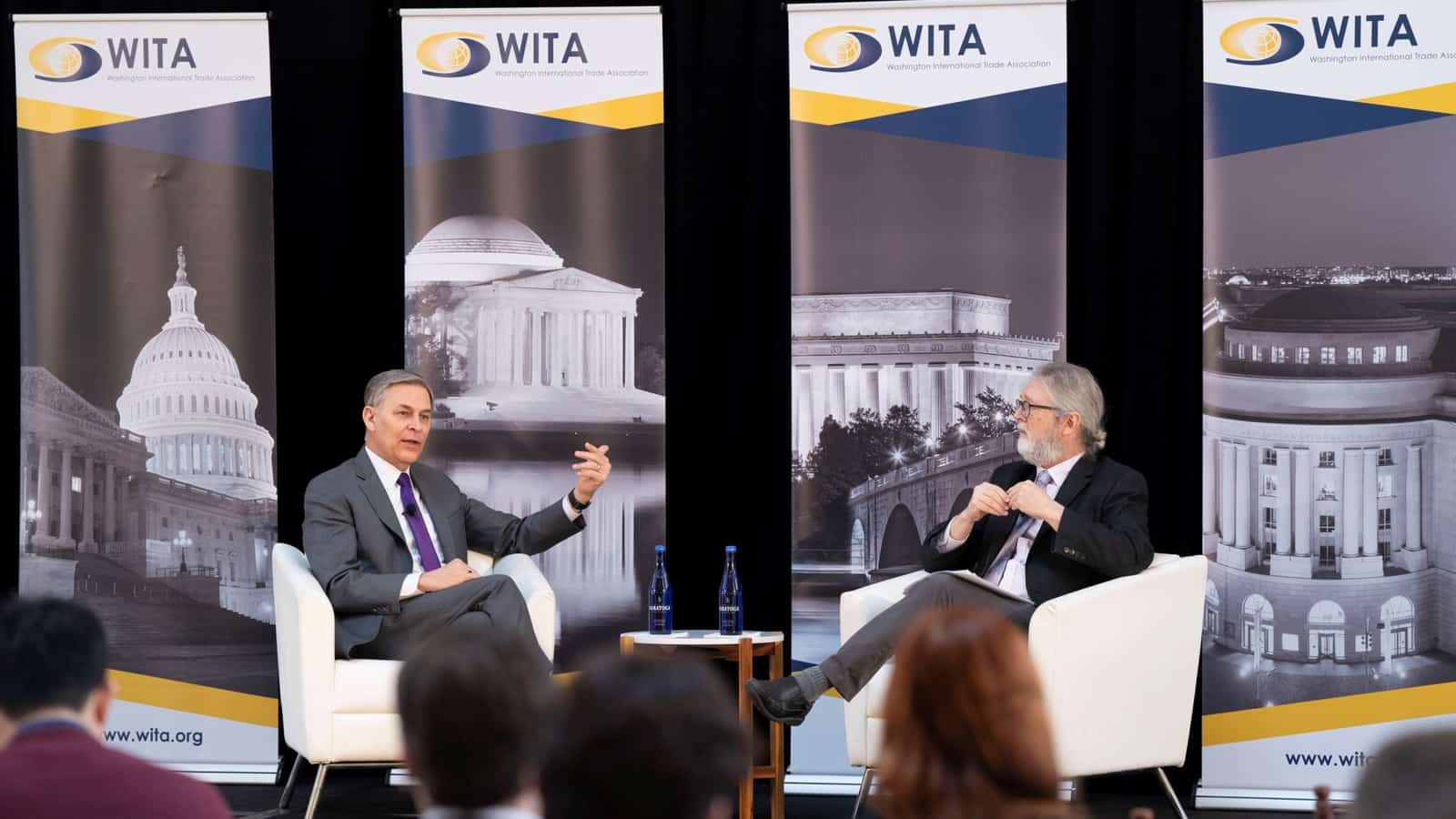
U.S. competitiveness on the world stage, trade agreements, intellectual property, democracy and regulatory certainty—these were just some of the topics NAM President and CEO Jay Timmons covered in a Tuesday interview with POLITICO’s Doug Palmer during the 2024 Washington International Trade Conference.
- The meeting was attended by senior U.S. trade officials and foreign ambassadors and hosted by the Washington International Trade Association in Washington, D.C.
Safeguarding IP: With the World Trade Organization’s 13th Ministerial Conference coming up later this month, Timmons discussed the damage that would result from one of the meeting’s expected agenda items: an expansion of a 2022 TRIPS waiver on IP rights to include COVID-19 therapeutics and diagnostics.
- “Intellectual property is truly the lifeblood of manufacturing,” said Timmons, who met with WTO Director-General Dr. Ngozi Okonjo-Iweala and WTO Deputy Director General Angela Ellard in Geneva last March to discuss the waiver.
- Manufacturers “work hard, and it’s always been kind of a given from the U.S. perspective that intellectual property protections would be front and center. … Obviously, we want to facilitate the growth of manufacturing in other areas of the world, too. But … [it] is a giant leap too far if therapeutics and diagnostics are included in the waiver.”
- American agreement to the expanded waiver, Timmons said, would be tantamount to the federal government telling manufacturers in the U.S., “By the way, we want you to invest in developing more innovations here in this country if we’re just going to turn around and give them away.”
Trade and tariffs: If the U.S. wants to remain competitive, we must negotiate a trade agreement now—and pass the Miscellaneous Tariff Bill, Timmons told Palmer.
- “Trade is really the recipe for peace and the recipe for working together harmoniously,” he said. “We’d like to see more trade agreements. We haven’t seen one negotiated here in the United States for over 10 years—and the rest of the world, quite frankly, is eating our lunch when it comes to negotiating these agreements.”
- The U.S., which has been operating without an MTB for more than three years, “need[s] MTB to not just meet our economic goals and not just feed the supply chains of manufacturers, but also to meet our national security objectives.”
Democracy vs. autocracy: Timmons—who last July led the American business community delegation to Cancun, Mexico, for meetings ahead of the third U.S.–Mexico–Canada Agreement “Free Trade Commission”—stressed the importance of the USMCA to underpinning democratic values worldwide.
- “This agreement is incredibly important to our national security, and it is important to our place in the world,” Timmons continued. “We need to expand the relationship, whether it’s trade or other relationships here in North America, and we need to embrace the relationships and our allies around the world—in Europe and Australia and New Zealand and Japan and other areas—because we are facing a choice … between free market economies and democracies and command economies and autocracies, and I want to strengthen the former, not allow the latter to bloom.”
Other needs: Timmons talked about other manufacturing priorities for the current administration and the next.
- “We need regulatory certainty that gives business leaders the ability to plan for the future,” he said. “We [also] need to invest in workforce incentives. All of those and infrastructure, which we have done, and we continue to do. You can’t just open up the trading system and not expect capital to flow outside of our borders if you don’t have the right policies internally.”
NAM in the news: Read POLITICO Pro’s coverage of the conference and Timmons’ interview here and here.
